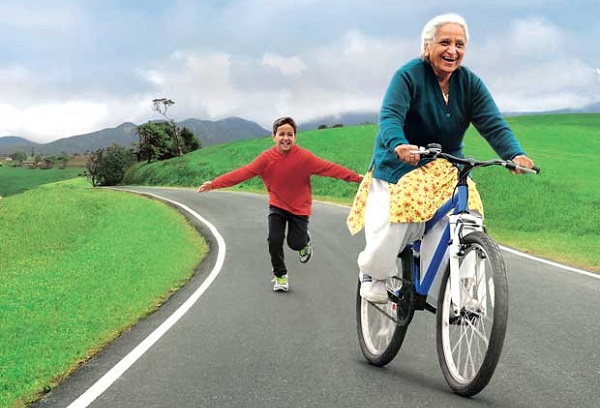
Welcome to Careerolife


Plan a Successful Career:
Career development is a journey. Wherever you are in the process – from career planning to considering a graduate school – we offer assistance through our different post of articles, blogs, information’s on education, career, health & lifestyle to help you plan and achieve a successful career & a meaningful life.
A critical component of ‘Careerolife’ mission focusing on the value of self-exploration and meaningful work. This Career and Life Vision program is designed to face students query, What matters most to them and why? The program encourages each student to ask questions, challenge hypotheses and explore unconventional pathways during their school life. Students can discover their unique vision of what a happy and meaningful life looks like for them.

Of the many paths to success, none can be walked alone. A support network is crucial both at work and outside – and members of this network must get their needs met. In pursuit of rich professional and personal lives, men and women will continue to face tough decisions about where to concentrate their efforts. We suggest that earnestly trying to focus is what will see them through.
Enjoy your Lifestyle:


Way of living of individuals, families and societies are manifested with their physical, psychological, social, and economic environments on a day-to-day basis.

Lifestyle reflects both the individual’s work and leisure habits in activities, attitudes, interests, opinions, values and income distribution. It reflects people’s self image or concept; the way they see themselves and believe to be seen by others. Lifestyle is a composite of motivations, needs, and wants. It is affected by factors such as culture, family, reference groups and social class.

Lifestyle is the interests, opinions, behaviours, and behavioural orientations of an individual, group, or culture. Life-style is a combination of determining intangible or tangible factors. Tangible factors focus specifically on demographic variables, i.e. a person’s demographic profile. Intangible factors relate to a person’s psychological aspects, such as personal values, preferences and perspectives.
A lifestyle typically reflects an individual’s attitudes, way of life, values, or world view. Lifestyle is a means of forging a sense of self and to create cultural symbols that resonate with personal identity. Not all aspects of a lifestyle are voluntary. Surrounding social and technical systems can constrain the lifestyle choices available to the individual and the symbols she/he is able to project to others and the self.

The lines between personal identity and the everyday doings that signal a particular lifestyle become blurred in modern society. Lifestyle may include views on politics, religion, health, intimacy, and more. All of these aspects play a role in shaping someone’s lifestyle.
A Healthy Lifestyle:

A healthy or unhealthy lifestyle will most likely be transmitted across generations. When a child aged 0 to 3 year has a mother with a healthy lifestyle, that child will be more likely to become healthy and adopt the same lifestyle.

A high income parents are more likely to eat organic food, have time to exercise. They can provide the best living condition to their children. Low-income parents are more likely to engage in unhealthy activities like smoking, drinking or having unhealthy addictions. This help them to release poverty-related stress and depression. Parents are the first teacher for every child. Everything that parents do will be very likely transferred to their children through the learning process.
Impact of Travel & Tourism on Lifestyle:
Many people undertake travelling to break away from the usual environment in life. They spend their leisure time suitably, gain experience that can become the source of their gladness. This plays a great role in contributing to the favorable indexes of quality of life. Experiences gained from travelling can be mostly found in two tourism products: leisure tourism and business tourism.

The health, family, friendly relations, work and activity are important motivators of travel and adventure. This promotes tourism products like health tourism, VFR (visiting friends and relatives) and conference tourism. For these factors separation from the living environment is essential to have different experiences in the visited place from those in everyday life. This promoting the improvement of happiness and quality of life. The models of quality of life are linked to three major areas of science: sociology, psychology and health.
Nowadays tourism and quality of life have an important role, more research is being done on these topics. Tourism is a sort of activity, where visitors can acquire experience and take an active part in their actions. This kind of experience can intensify through repeated travelling. It can contribute to satisfaction concerning life and, hereby travelling can lead to the awareness of happiness. This is important because if you are satisfied and gain a lot of experiences you will be happier and more satisfied with your life and travel more often to get more positive experiences.

“Tourism comprises the activities of persons travelling to and staying in places outside their usual environment for not more than one consecutive year for leisure, business and other purposes not related to the exercise of an activity remunerated from within the place visited.”

Tourism has positive effect on quality of life of residents. According to various surveys, the greatest tourism impacts are associated with emotional wellbeing, community well-being, income and employment. Health and safety well-being is considered less favorable as regarding the effect of tourism on quality of life. Overall satisfaction with life is derived from material well-being. This includes the consumer’s sense of well being as it is related to material possessions, community well-being, emotional well-being, and health and safety well-being domains.

A good relationship exist between cultural impact of tourism and satisfaction from emotional well-being. The relationship between the environmental impact of tourism and the satisfaction with health and safety well-being were strongest in the decline stage of tourism development.
